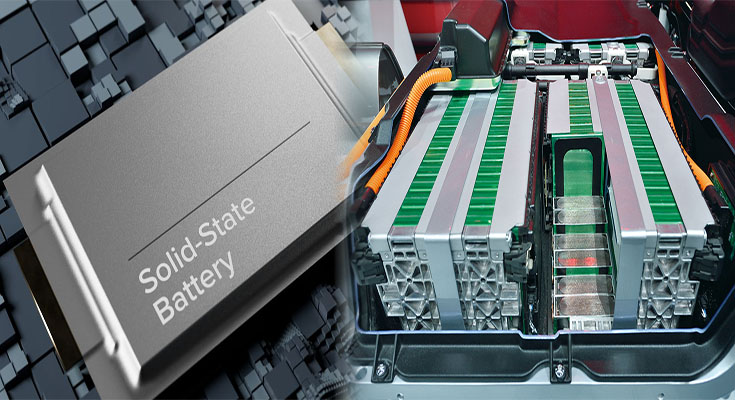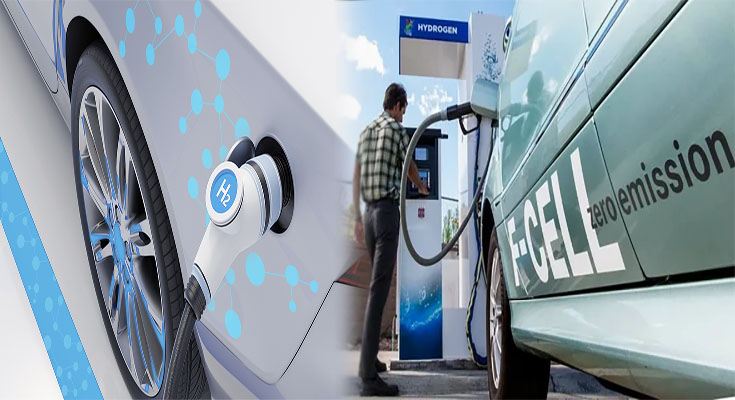As the demand for sustainable transportation solutions continues to rise, the development of advanced battery technologies has become a focal point in the electric vehicle (EV) industry. Solid-state batteries represent a significant advancement in energy storage, offering several key advantages that have the potential to revolutionize the performance and feasibility of electric vehicles. In this article, we will delve into the advantages of solid-state batteries for electric vehicles and their pivotal role in shaping the future of EV technology.
Understanding Solid-State Batteries
Solid-state batteries differ from traditional lithium-ion batteries in their composition and design. Unlike lithium-ion batteries, which use liquid electrolytes, solid-state batteries employ solid electrolytes, providing several distinct advantages that are poised to enhance the capabilities of electric vehicles.
Advantages of Solid-State Batteries for Electric Vehicles
- Enhanced Safety: Solid-state batteries are inherently safer than traditional lithium-ion batteries. The absence of volatile and flammable liquid electrolytes significantly reduces the risk of thermal runaway, which can lead to battery fires or explosions. This enhanced safety profile is critical for electric vehicles, offering peace of mind to drivers and manufacturers alike.
- Higher Energy Density: Solid-state batteries have the potential to achieve higher energy density, meaning they can store more energy in a smaller and lighter package. This translates to increased range for electric vehicles without the need for larger and heavier battery packs. Higher energy density is a game-changer for electric vehicles, addressing one of the significant barriers to mainstream adoption: range anxiety.
- Faster Charging: Solid-state batteries enable faster charging capabilities, a crucial advantage for electric vehicle owners. The use of solid electrolytes allows for rapid and consistent ion conductivity, facilitating faster charging times compared to traditional lithium-ion batteries. This feature enhances the practicality and convenience of electric vehicles, aligning with the growing demand for efficient charging infrastructure.
- Extended Lifespan: The design of solid-state batteries contributes to their extended lifespan. Compared to lithium-ion batteries, solid-state variants exhibit reduced degradation over time, leading to a longer lifecycle. This increased durability translates to lower long-term ownership costs for electric vehicle owners, further improving the overall value proposition of EVs.
- Wide Operating Temperature Range: Solid-state batteries are better equipped to operate across a wide temperature range, offering improved performance in extreme conditions. This versatility makes them particularly well-suited for electric vehicles, ensuring consistent functionality in varying climates and weather conditions.
- Environmental Impact: The environmentally friendly nature of solid-state batteries is a significant advantage for electric vehicles. By eliminating the need for toxic and scarce materials often found in traditional lithium-ion batteries, solid-state technology contributes to a more sustainable and eco-friendly approach to energy storage.
- Reduced Cell-to-Pack Ratio: Solid-state batteries have the potential to reduce the cell-to-pack ratio, simplifying battery pack design and assembly. This streamlined approach can lead to cost savings in manufacturing and assembly processes, ultimately contributing to the overall affordability of electric vehicles.
Future Implications
The advantages of solid-state batteries represent a significant leap forward for the electric vehicle industry. As research and development efforts continue to refine and scale this technology, the implications for the widespread adoption of electric vehicles are profound. The safety, range, charging speed, durability, environmental impact, and overall performance enhancements offered by solid-state batteries position them as a cornerstone of the future of electric mobility.
The advantages of solid-state batteries for electric vehicles underscore their potential to drive a fundamental shift in the capabilities and appeal of electric mobility. With a focus on safety, energy density, charging speed, longevity, versatility, sustainability, and cost-effectiveness, solid-state battery technology holds the promise of reshaping the landscape of electric vehicles, bringing us closer to a future where sustainable transportation is not only practical but also superior in many respects.













